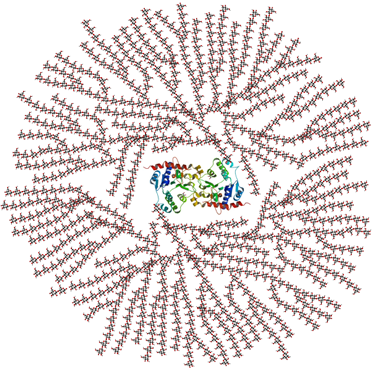Glycogen
Glucose is a carbohydrate and a simple sugar that is of great importance as a source of energy in human metabolism. To store larger amounts of energy, the body makes use of long chains of glucose called polysaccharides. Glycogen is a very important multi-branched polysaccharide which has much use for energy storage in human and other animal bodies. With a large number of basic sugars, it forms an efficient energy storage element in cells and in the liver. Glycogen stores in skeletal muscle serve as a form of energy storage for the muscle. |  Image credit: Mikael Haggstrom, 2014, used by permission. |
Glycogen serves as a relatively quick source of energy compared to fats, which may be stored in large amounts. The body stores less than half a pound of glycogen, so it can be exhausted by prolonged exercise (Audesirk).
| Glycogen Wiki |
Biochemical concepts
Chemistry concepts
References
Shipman, Wilson and Todd
Ch 15
Tillery, Enger and Ross
Ch 14
Audesirk & Audesirk
Ch 29
| HyperPhysics*****Chemistry | R Nave |